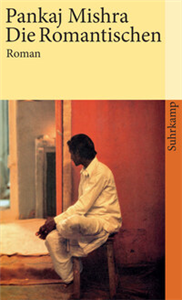Your Search Results
-
Promoted ContentHumanities & Social Sciences
Naguib Mahfouz Annuals: About Youth and Freedom
by Naguib Mahfouz
Religion is taught in schools as if a branch of science consisting of some Koranic verses, prophetic tradition (Hadith), creed, worships, and biography! Pupils usually study such items by heart, then they go to exam and forget all. Religion is neither a branch of science nor a branch of material knowledge. Religion is a spiritual education that had to be applied in society. It is felt in the way people behave or conduct. Sometimes we meet a clever pupil but he has bad manners! Another, may get high marks in religion but dismissed out of the school for his ill behaviors and bad manners. I believe that religion must be taught as a spiritual education surrounded by a sphere of sympathy and affection. It is something felt by heart, not studied by heart. Teachers have to adress minds to make pupils convinced. They have to teach them biography of the prophet and also of the orthodox Caliphs. They have to select Koran verses according to “the age and the need”. For example Koranic verses dealing with” prayers”, must be studied in an early stage. Then Koranic verses dealing with “fasting”. After that comes verses dealing with moral conducts. In an advanced stage or secondary school, students can study views, ideas, conceptions, visions and philosophy of Islamic eminent characters, as well as eminent characters of other religions. There is a sort of a deflagrated competition between different religions, though they are similar in concepts and attitudes. Also, rivalary between Islam and Western civilization, and communism, is considered. Western civilization has its own entity. It is an integral doctrine having its theories and applications. Western civilization admits human rights and free economy. It could achieve marvellous progress in different fields of life. At the other hand communism also has its own integral doctrine with a private philosophy, economy and ruling systems. It aspires equality between all people, regardless to their colour or race. As a matter of fact it could achieve marevellous progress in different fields of life. Islam stands in between those two different civilizations, trying to get up and rise after a long sleep in the darkness of stagnancy and retardation. Lately, Islam did not achieve adequate progress in fields like modern science, technology, and material power. But it didn’t surrender, because it is till standing as a civilization having its own historical dignity and tradition. But now it is working hard to compensate what it did lose and indemnify what has gone, without contradicting its message and entity.
-
Promoted ContentDecember 2007
Die Romantischen
Roman
by Pankaj Mishra, Barbara Schaden
Samar, ein weltfremder junger Mann von knapp 20 Jahren, Anwärter auf den Staatsdienst, ist meist in ein Buch vertieft; in den Klassikern der europäischen Literatur sucht er seinen Lebenssinn. Dann trifft er in Benares, der heiligen Stadt am Gangesufer, auf zwei Frauen, die seine Gefühle in Aufruhr versetzen: die eine, Miss West, führt ihn in eine Gruppe europäischer Aussteiger ein, die in Indien auf der Suche nach einer Art exotischer Wahrheit sind, die andere, Catherine, öffnet ihn für die Liebe und das Unglück. Pankaj Mishras Erfolgsroman Die Romantischen ist das Drama einer Selbstfindung und zugleich ein vielschichtiges Porträt des modernen Indien. Sinnlich und atmosphärisch, in der Tradition von E. M. Forster und V. S. Naipaul, erzählt der Autor von der illusionären Romanze zwischen Ost und West.








